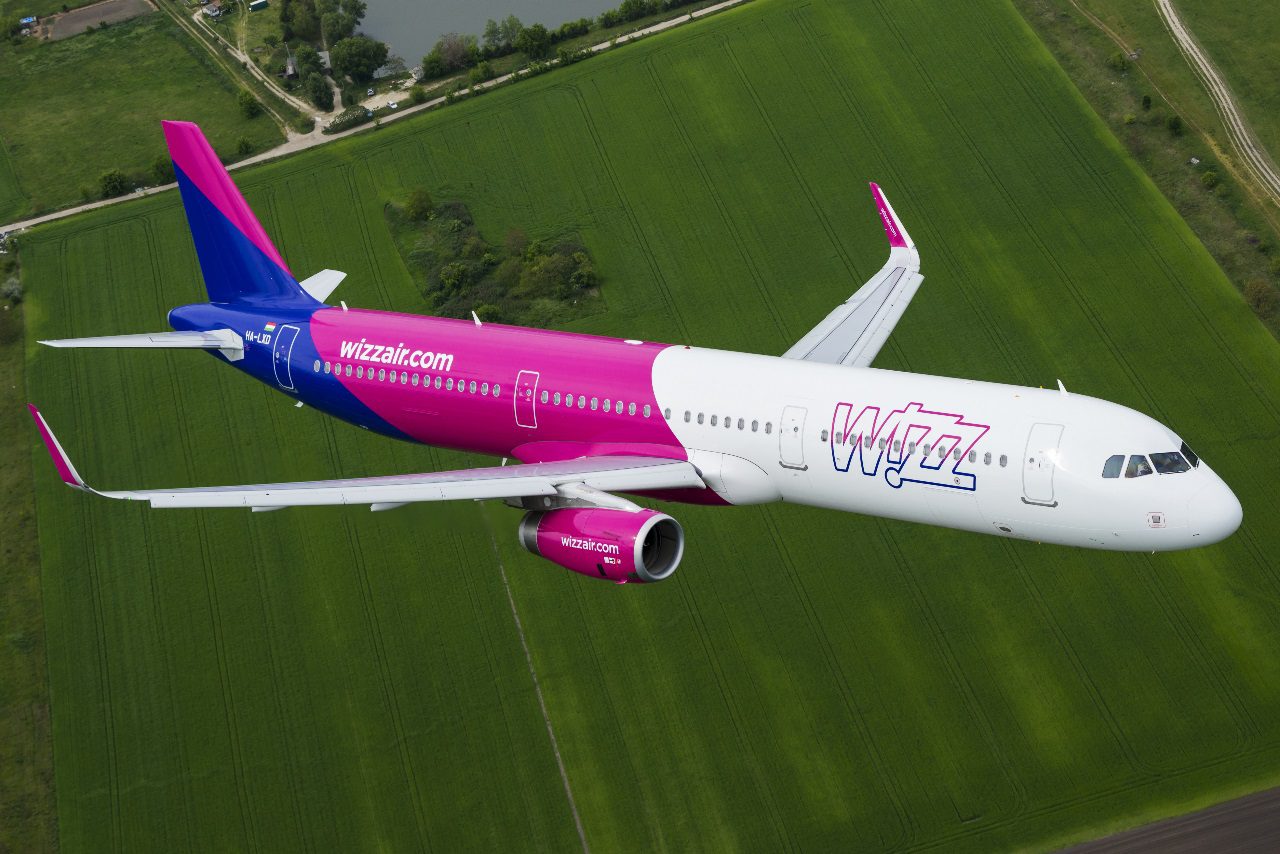
wizz air a321 2 79715b68
Continued high fuel costs, operational disruptions at airports, air traffic management issues, and the resulting compensation to customers are expected to push Wizz Air into a first-quarter FY23 operating loss this summer. The ultra-low-cost carrier is particularly blaming supply chain/staffing issues at its UK bases in London Gatwick and London Luton. Yet, the carrier expects a record summer with strong bookings. Disruption effects are key to FY23 results of Wizz Air.
During its FY22 earnings call on June 8, Wizz Air CEO Jozsef Varadi was positive about demand. Forward bookings are getting longer again, giving better visibility on projected capacity and revenues. In the current first quarter (April-June) of FY23, Wizz plans to operate at thirty percent higher capacity compared to the pre-Covid FY20 and up forty percent in Q2 (July and September). This translates into revenue growth of 160 percent of 2019 levels and should drive aircraft utilization back to twelve hours a day compared to 7.4 hours last year. Load factors should recover to ninety percent in Q2, up from on average 78.1 percent in FY22. It operated at 77.1 percent in the third quarter.
A large part of the growth will come from Wizz’s core Central East European markets in Hungary (despite a €10 surcharge per passenger from July 1), Romania, Albania, and the Balkans, while Italy will also grow this year. This summer, the carrier offers in total 32 new routes and will increase frequencies on another seventy routes by adding 24 aircraft to these markets. Part of the growth comes from shifting capacity. Ukraine was set to be a key market this year, but following the invasion by Russia in February, Wizz Air closed its bases in Kyiv and Lviv and moved all staff and most aircraft out of the country. Four aircraft remain stranded in the two cities, but they are in good condition. Oslo and Dortmund have not lived up to expectations and are also dropped.
Hitting out at UK shortages
In the UK, Wizz Air has acquired fifteen daily slot pairs of Norwegian at London Gatwick and two of Vueling at Luton to expand its UK footprint, but at the same time, the airline will close its Doncaster Sheffield base on June 10. Varadi said this decision was made after Doncaster increased operating costs to unacceptably high levels, which combined with other cost increases, would make Wizz uncompetitive.
Varadi was most critical of the supply chain issues in the UK, saying that Gatwick and Luton and air traffic management have totally underestimated the recovery of demand that is happening now. The closed UK labor market following Brexit is contributing to this problem, leading to costly disruptions: “Supply chain issues are affecting toe industry globally, but you are hit a lot harder in the UK. I don’t think supply chain issues will undermine our strategy to grow as a whole, but we have to watch out for what is happening in the UK.” That Ryanair and Jet2 seem less affected at London Stansted is “because they benefit from a more intact operating platform at the airports at which they are.”
Varadi expects airport staffing shortages and other issues to calm down later in the year towards the winter season as airlines will take out capacity. “The level of disruptions could continue for a few months but it will turn around for various reasons. In the first half of the financial year, we will be subjected to the supply chain performance and associated disruption costs but in the second half we should be seeing historical levels to be re-instated.”
Wizz itself says it is adequately staffed for the summer and expects to have 6.700 people available. Still, it was forced to cancel flights in the past weeks and months as the crew was exceeding working hours. “That’s why we are creating more buffers and standby crews to make sure that if we get disrupted, we have a pool of pilots and cabin crew to take over. But you have to accept the fact that if you get over-delayed by ATC for example, we have to cancel. But we try to minimize this.”
FY22 loss
Wizz Air ended its financial year 2022 (March 2021 to March 2022) with a €642.5 million net loss compared to €-576 million in FY21. The operating loss was €456.3 million compared to €528.1 million. EBITDA improved to €-19 million versus €182.8 million in the previous year.
Revenues increased to €1.663 billion from €739 million. Ticket revenues were up by 124.8 percent to €732.1 million, thanks to 27.1 million passengers carried compared to 10.2 in FY21, which represents an increase of 166 percent over the first Covid-year FY20. Ancillary revenues increased by 125.4 percent to €931.4 million. Wizz grows capacity in available seat kilometers (ASK) by 118 percent to 55.8 million. The load factor went to 78.1 percent from 64 percent.
Expenses were up to €2.133 billion from €1.173 billion, with fuel costs taking up almost one-third of this. The fuel bill increased by €400 million to €653 million, thanks to higher ASKs and more expensive fuel. Staffing and operating costs were also higher, which reflects the lower utilization per aircraft of 7.4 hours compared to the targeted twelve hours per day.
Given the uncertainties of the pandemic, Wizz Air ceased hedging against the US dollar and jet fuel in September 2020 to prevent over-hedging. As Jozsef Varadi repeated, hedging “only costs money”. But given the high volatility of fuel prices in the market, the carrier has decided to hedge fuel at thirty percent until August or fifteen percent for the whole of FY23.
The airline ended the financial year with €1.379 billion in total liquidity, of which €1.217 billion is unrestricted. Liquidity was strengthened by a bond offering of €500 million, of which £300 million has been used to repay CCFF payroll support in the UK. Net debt was €2.748 billion, up from €1.690 billion.
A slide showing Wizz air’s fleet strategy until FY28. (Wizz Air)
More A321neo’s on order
In May, Wizz exercised purchased rights for 21 Airbus A320neo’s and converted them into A321neo’s for delivery between 2024 and 2026. This will grow the A321neo-fleet to 239 aircraft by 2026. Varadi said he is aware of the delay in the certification of the A321XLR, of which the first four deliveries were originally due in 2023, growing the fleet to 47 in 2027. “We need to understand to what extent deliveries will be delayed. We are excited about those aircraft but we aren’t dependent on those aircraft. We have an agreement with Airbus that, should XLR deliveries be delayed, we will get normal A321neo’s instead. So the delay will not affect the size of the fleet.”
The fleet will grow to 379 aircraft in FY28, which should be sufficient for its current growth strategy. But Wizz is looking for other options. As reported, it plans to launch Wizz Air Malta in October and is investigating opportunities with the Saudi Arabian government for a new ultra-low-cost airline. This would be the second subsidiary in the Gulf region after Wizz Air Abu Dhabi, which could have a fleet of fifty aircraft by the end of the decade.
“Consumer uptake is really picking up in Abu Dhabi. That increases our appetite, not only for expanding Abu Dhabi but also for looking at other opportunities in the region”, said Varadi. “Within that context, Saudi Arabia is a great opportunity. (…) But the conditions are that we need to see reasonable prospects for a return on the investment that we are making. We need to make sure that we create the right platform in the country before we commit.”
Views: 23




